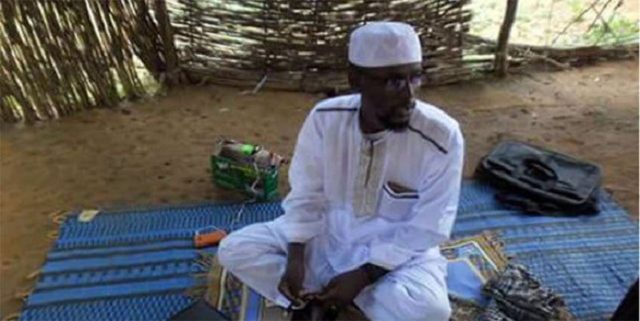
Briefs
Publication: Terrorism Monitor Volume: 15 Issue: 7
By:

Burkina Faso: Fears Grow Over Domestic Militant Threat
A series of attacks in rural Burkina Faso have raised concerns over an increasingly active homegrown jihadist militant group operating in the West African country’s remote north.
A fire at a primary school in Baraboule, in northern Burkina Faso’s Soum province, on March 14, prompted reports of a suspected jihadist attack. Some claimed that armed men had abducted students, while others said the fire had simply been started accidentally (MaliActu, March 15). Locals are jittery following a series of reported incidents in schools closer to the border with Mali, where armed men have insisted teachers conduct lessons in Arabic rather than French (Burkina Online, January 31).
It is unclear who is menacing the schools, but local jihadist outfit Ansarul Islam, headed by radical preacher Ibrahim Malaam Dicko, is considered the most likely contender. The group is also thought to have been behind attacks on two Soum police stations on February 27 (Africa News, February 28). It claimed an attack in December of last year on a military base in Nassoumbou that killed 12 soldiers. Likewise, it claimed involvement in the attack on the Splendid Hotel in Ouagadougou, the Burkinabe capital, in January 2016, in which 29 people were killed — the attack was originally attributed to militants across the border in Mali (Burkina Online, December 28, 2016; al-Jazeera, January 18, 2016).
A native of Soum province, Dicko began preaching on local radio in Djibo town in 2012. He travelled to Mali in 2013, where he was arrested by French troops and held by Malian authorities for two years before being released. He founded Ansarul Islam upon his return. Dicko has been closely linked to Amadou Koufa, the Malian founder of the Macina Liberation Front, with strong ties to Ansar Dine. According to some reports, he was briefly detained in Mali again in 2015, following a meeting with Koufa (Intellivoire, January 4).
The emergence of Dicko’s group has prompted Burkina Faso to step up its counter-terrorism efforts. President Roch Marc Christian Kabore replaced his military chief, Pingrenoma Zagre, in December last year, and announced plans for the deployment of more troops near the Mali border (Le Faso, December 28, 2016).
A public outcry following the Nassoumbou attack appears to have made Zagre’s position untenable. His replacement, Oumarou Sadou, hails from Djibo, possibly making him more familiar with the remote area where Dicko’s group is based. Already, the security forces have hit back — on March 23, an army raid on an Ansarul Islam base killed one of the group’s leaders, but was unable to locate Dicko himself (Sahel Intelligence, March 24).
Despite the Nassoumbou attack and the reported incidents at schools in Soum, the main jihadist threat to Burkina Faso likely continues to come from across the border in Mali. But Ansarul Islam’s capacity remains unclear and it is too early to tell how effective Sadou will be at stamping out Burkina Faso’s own militant Islamists.
Bangladesh: Security Forces Raid Islamist Bases
Bangladesh’s paramilitary Rapid Action Battalion have mounted a series of raids on the hideouts of suspected terrorists, but amid the high-profile crackdown there are suggestions the country’s Islamist militants may be growing more sophisticated.
Security forces stormed a building in Moulvibazar town on March 31, bringing a three-day siege to an end (BDNews24, April 1). The bodies of three suspected militants were found inside. Police said the group had blown themselves up rather than surrender. A day earlier, a raid on a building in a nearby neighborhood uncovered eight bodies, possibly including that of a child (Star Online, March 30). Both buildings were owned by the same person — a UK citizen of Bangladeshi origin, according to media reports (BDNews24, March 30).
The Moulvibazar raids have arguably been the security forces’ most successful raids in recent months. During a previous raid in in Comilla, about 50 miles from the capital Dhaka, the suspected militants escaped, while the siege of an alleged militant hideout in Sylhet city saw at least six people killed and several others injured when bombs went off outside the police cordon (BDNews24, March 28). The alleged militants had also reportedly attempted to secure explosives to a refrigerator that had been used to block the building’s doorway (Daily Star [Bangladesh], March 25).
The raids are a continuation of the crackdown initiated in the wake of last year’s devastating attack on a popular Dhaka restaurant, in which militants kill 20 hostages. They also follow two suicide attacks close to Dhaka’s Hazrat Shahjalal International Airport (Dhaka Tribune, March 25).
Bangladeshi officials insist the attacks are the work of domestic jihadist group Jamayetul Mujahideen Bangladesh (JMB), which the government — for its own political ends — likes to link to opposition parties such as the Bangladesh Nationalist Party (BNP) and Jamaat-e-Islami.
The recent raids appear to have targeted a new group, referred to in local media reports as “Neo-JMB.” Whether this is an admission of a developing jihadist threat is unclear. However, the increasing use of explosives could be an indication that this is the case. Previous jihadist attacks in Bangladesh have been brutal, though relatively unsophisticated.
The suicide attacks near the airport and the incidents during the recent raids could indicate a better-resourced and better-trained group of militants is emerging in Bangladesh. Following the Sylhet city raid, security forces recovered four bodies, some apparently still rigged with explosives that appear to have taken experts several days to safely defuse (Click Ittefaq, April 4).




